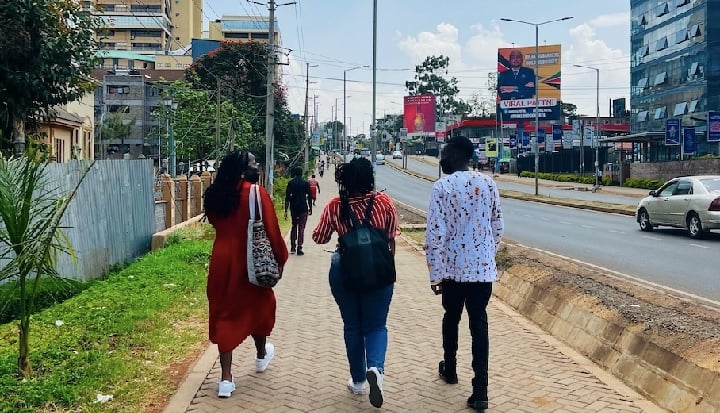Covid-19 has undeniably changed the way in which we understand the world of work coupled with unemployment numbers that have increased globally. We have undoubtedly read horrifying statics about youth unemployment and the scarcity of traditional job opportunities. It is estimated that we will witness a global figure of 73 million unemployed youths by the end of 2022. This figure is 6 million more than pre-Covid numbers in 2019. In fact, the International Labour Organisation (ILO) has found that youths aged between 15-29 years old have been the worst affected age demographic when it comes to unemployment as a direct consequence of the pandemic. Looking closer at the African continent, youth unemployment was at 12.7% according to a 2020 ILO report. At first glance, one may not grasp the severity of this statistic. It conceals the scale and number of young people who have left the labour market completely and are classified as NEETs (not in employment, education, or training). The problem is glaring in a context where the youth bulge is predicted to result in 830million youth in Africa by 2050, thus harnessing this potential presents an opportunity if effectively supported.
As a society we cannot ignore the extreme difficulties that young people face daily. There is great potential for business to think about the future of work, trends, and opportunity for investment in skills development that promotes youth employment in non-traditional jobs. It is worth asking, what we can do as business leaders and governments to effectively equip young people for the world of the future.
An onus has been placed on governments globally to mitigate the impact that Covid-19 has had on jobs. The Organisation for Economic Co-operation and Development (OECD) 2021 report on Policy Responses to Coronavirus, which focuses on the youth, suggests, amongst other things, that governments should apply a focused lens on creating policy frameworks and services for young people who do not have employment. Practically speaking, this would involve implementing programmes that allow the youth to upskill and reskill into more relevant industries. In an African context, data shows that SMEs account for substantial employment creation. This should guide governments in understanding where the public and private sector could be providing support for young people who are looking for jobs today.
The pandemic has also highlighted the shift towards digitalisation. Integrating technology into our work-lives, education provision and overall communication became vital during the height of the pandemic and remains prevalent today. In the face of increased digitalisation, what does that mean for the African continent and the future of work, specifically for the youth? An emphasis has been placed on the digitalisation of Africa in research done by organisations such as the United Nations and the OECD. It is predicted that increased digitalisation will support economic diversification and the “creation of decent jobs for young men and women” (ILO 2022). In fact, the ILO, African Union, and International Telecommunications Union (ITU) have collaborated on an effort to investigate how digitalisation will transform the world of work for young Africans. Multiple stakeholders are invested in technology as the future of work, which will hopefully produce alternative income earning models. However, if we choose to popularise digitalisation as a key to unlocking potential growth, we cannot ignore certain structural challenges that many young Africans still encounter. There are many places that experience a lack of access to electricity, internet, high data costs, and low mobile phone penetration.
Additionally, when exploring alternative livelihood opportunities, entrepreneurship and start-ups in the digital space allow us to re-imagine the future of work for Africa’s youth. AfriCity is exploring alternative likelihoods for youth through data collection using smart phones, the gig economy and ability of youth to apply diversified digital skills in different contexts becomes pivotal in promoting an entrepreneurial mindset. How do we create a thriving start-up and entrepreneurial ecosystem for Africans? The answer lies in governments investing in appropriate support structures. This includes creating policies that support and protect start-ups in the economy, increasing access to funding opportunities as well as encouraging incubator and accelerator programmes on the continent. Implementing these initiatives would give more start-ups and entrepreneurs a promising chance to get off the ground and scale effectively. This will start changing the narrative from young people being jobseekers to equipped business innovators.
As activated business leaders and community, it is important to come together and contribute to the ideation and implementation of initiatives that are already happening on the continent. Additionally, embracing a transforming economic environment that requires equipping youth with multiple skillsets. This will enable us to collectively transform our youth to align with a rapidly evolving global labour market. As such, only time will tell how effective digitalisation and government interventions will be as a catalyst for re-invigorate the job market for the youth.
Read more articles on Youth










